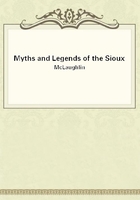Others object,with Brentano,to this interpretation,and believe that it was not an instance of class legislation,but merely expressed the medieval idea that prices should be determined by what was thought reasonable and not by competition;for this same Statute regulates the prices of provisions and almost everything which was sold at the time.Probably Brentano is in the main right.It is true that the landowners did legislate with the knowledge that the Statute would be to their own advantage;but the law is none the less in harmony with all the ideas of the age.The Statute affected the labourer in two directions:it fixed his wages,and it prevented him from migrating.It was followed by the Statute of 1388,which is sometimes called the beginning of the English Poor Law.We here find the first distinction between the impotent and the able-bodied poor.This law decreed that if their neighbours would not provide for the poor,they were to seek maintenance elsewhere in the hundred;no one is considered responsible for them;it is assumed that the people of the parish will support them.Here too we catch the first glimpse of a law of settlement in the provision that no labourer or pauper shall wander out of his hundred unless he carry a letter-patent with him.
No exact date can be assigned to the growth of able-bodied pauperism.It was the result of gradual social changes,and of the inability to understand them.Medieval legislators could not grasp the necessity for the mobility of labour,nor could they see that compulsory provision for the poor was essential,though the Statute of l388shows that the bond between lord and dependent was snapped,and security for their maintenance in this way already at an end.The Church and private charity were deemed sufficient;though it is true that laws were passed to prevent the alienation of funds destined for the poor.And with regard to the mobility of labour,we must remember that the vagrancy of the times did not imply the distress of the labourers,but their prosperity.The scarcity of labour allowed of high wages,and the vagrant labourer of the time seems never to have been satisfied,but always wandering in search of still higher wages.The stability of medieval society depended on the fixity of all its parts,as that of modern society is founded on their mobility.
The Statutes afford evidence that high wages and the destruction of old ties did in fact lead to disorder,robbery and violence;and by and by we find the condition of the labourer reversed;in the next period he is a vagrant,because he cannot find work.
In the sixteenth century pauperism was becoming a really serious matter.If we ask,What were its causes then,and what the remedies proposed,we shall find that at the beginning of the century a great agrarian revolution was going on,during which pauperism largely increased.Farms were consolidated,and arable converted into pasture;in consequence,where two hundred men had lived there were now only two or three herdsmen.There was no employment for the dispossessed farmers,who became simple vagabonds,'valiant beggars,'until later they were absorbed into the towns by the increase of trade.A main cause of the agrarian changes was the dissolution of monasteries,though it was one that acted only indirectly,by the monastic properties passing into the hands of new men who did not hesitate to evict without scruple.About the same time the prices of provisions rose through the influx of the precious metals and the debasement of the coinage.And while the prices of corn in 1541-82rose 240per cent as compared with the past one hundred and forty years,wages rose only 160per cent.In this fact we discover a second great cause of the pauperism of the time;just as at the end of the eighteenth century we find wages the last to rise,and the labouring man the greatest sufferer from increased prices.As regards the growth of pauperism in towns,the main cause may be found in the confiscation of the estates of the guilds by the Protector Somerset.These guilds had been practically friendly societies,and depended for their funds upon their landed properties.
And how did statesmen then deal with these phenomena?The legislation of the age about 'vagabonds'is written in blood.The only remedy suggested was to punish the vagrant by cruel tortures-by whipping and branding.Even death was resorted to after a second or third offence;and though these penalties proved very ineffectual,the system was not abandoned till the law of 43Elizabeth recognised that punishment had failed as a remedy.The other class of paupers,the impotent poor,had been directed by a Statute of Richard II to beg within a certain limited area;in the reigns of Edward VI and Elizabeth the necessity of compulsory provision for this class of poor slowly dawned upon men's minds.At first the churchwardens were ordered to summon meetings for the purpose of collecting alms,and overseers were appointed who 'shall gently ask and demand'of every man and woman what they of their charity will give weekly towards the relief of the poor.Mayors,head-officers,and churchwardens were to collect money in boxes 'every Sunday and holyday.'The parsons,vicar and curate,were to reason with those who would not give,and if they were not successful,the obstinate person was to be sent to the bishop,who was to 'induce and persuade him';or by the provisions of a later law,he was to be assessed at Quarter Sessions (1562).Such was the first recognition of the principle of compulsory support,of the fact that there are men in the community whom no one will relieve.















